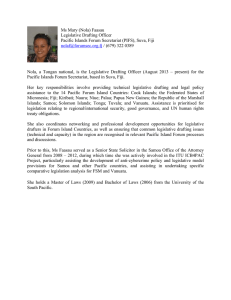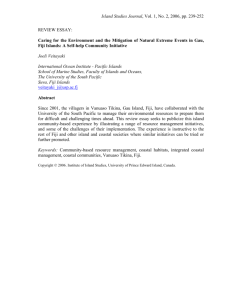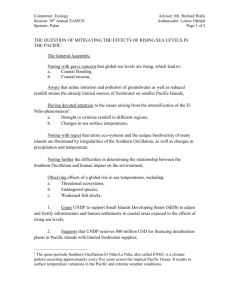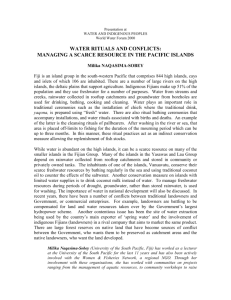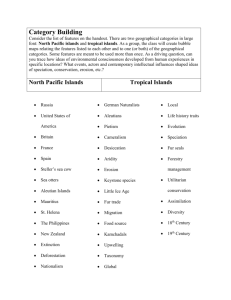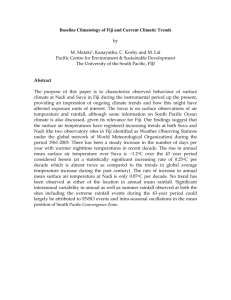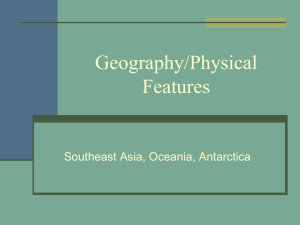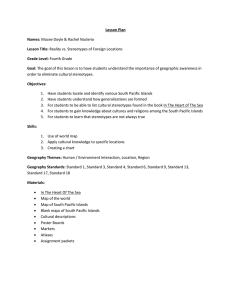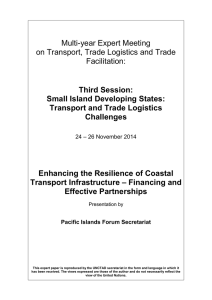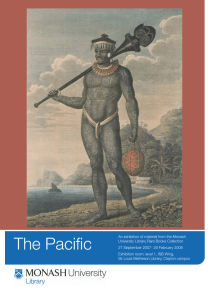Information on Social Analysis
advertisement
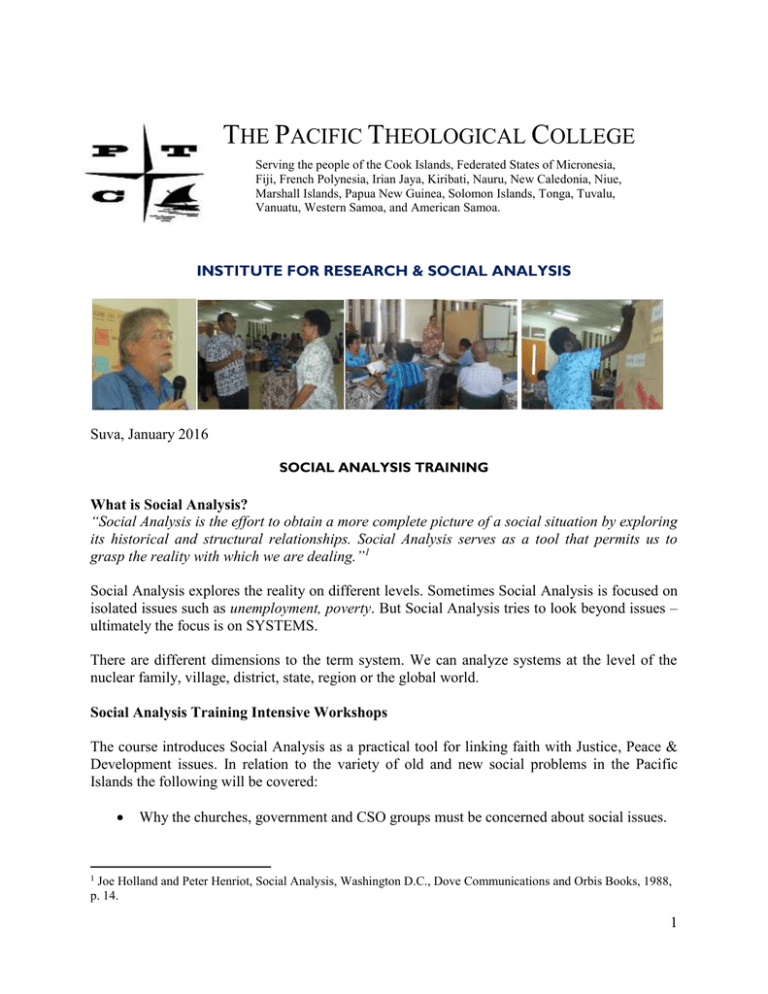
THE PACIFIC THEOLOGICAL COLLEGE Serving the people of the Cook Islands, Federated States of Micronesia, Fiji, French Polynesia, Irian Jaya, Kiribati, Nauru, New Caledonia, Niue, Marshall Islands, Papua New Guinea, Solomon Islands, Tonga, Tuvalu, Vanuatu, Western Samoa, and American Samoa. INSTITUTE FOR RESEARCH & SOCIAL ANALYSIS Suva, January 2016 SOCIAL ANALYSIS TRAINING What is Social Analysis? “Social Analysis is the effort to obtain a more complete picture of a social situation by exploring its historical and structural relationships. Social Analysis serves as a tool that permits us to grasp the reality with which we are dealing.”1 Social Analysis explores the reality on different levels. Sometimes Social Analysis is focused on isolated issues such as unemployment, poverty. But Social Analysis tries to look beyond issues – ultimately the focus is on SYSTEMS. There are different dimensions to the term system. We can analyze systems at the level of the nuclear family, village, district, state, region or the global world. Social Analysis Training Intensive Workshops The course introduces Social Analysis as a practical tool for linking faith with Justice, Peace & Development issues. In relation to the variety of old and new social problems in the Pacific Islands the following will be covered: Why the churches, government and CSO groups must be concerned about social issues. 1 Joe Holland and Peter Henriot, Social Analysis, Washington D.C., Dove Communications and Orbis Books, 1988, p. 14. 1 Attention will be focused on developing a practical methodology for social analysis, different models of social change and development, and a range of possible pastoral responses. Participants will be challenged to reflect critically on specific economic, political, religious and cultural contexts in the Pacific Islands, and to design own strategies for social action. Exploring the different facets of poverty by exploring the causes of poverty and how governments, civil society organizations and churches respond to poverty. Examining critically globalization in all it diverse forms of world-wide interconnectedness. Such interconnections include beside economic ties, political ties, cultural ties, and social ties and need to be understood in terms of how they operate in conjunction with one another. Special attention will be given to the impact of globalization on politics, economics and trade, culture and religion and the environment in the Pacific Islands. Course Objectives To increase the capacity and level of skills for participants for the core staff and coworkers of churches and organizations the area of Social Analysis, by introducing a practice oriented methodology for social analysis, different models of social change and development, and a range of possibilities to get engaged in social action. To explore the biblical and theological foundations for Social Justice – Social Analysis – and Social Action; To provide participants with tools and methods in order to enable them to analyze and understand social problems deriving from their economic, cultural, social and political context; To To sharpen the consciousness for the importance of a social awareness and social action; To learn to reflect critically on the specific economic, political, social and cultural contexts of participants; To enable the participants to develop/design strategies for social action in a given context. enable participants to develop strategies to address these problems; 2 Method of Delivery The course will be run as a workshop, using adult experiential learning methodology. Our training is also participatory. We use a variety of methods based on action learning principles such as case studies, group work, role play and peer support. This is complimented by presentations on relevant theoretical frameworks and emergent thinking and trends. As an interdisciplinary course facilitators from different disciplines will deliver different components of the workshop. Enrollment (Two Options): The training may be taken either for professional development or for academic credit as an Undergraduate Certificate in Social Analysis. 1. Academic Credit For academic credit (Undergraduate Certificate in Social Analysis) participants have to attend two blocks of two-week intensive workshops. Please note that participants who take this option will have to successfully complete specifically designed assignments for assessment within three months after having taken part in the respective intensive course. 2. Professional Development Participants who take the option of professional development have to attend either one or two 2week intensive workshops offered in-country (depending on needs of participants). Admission Requirements: The admission requirements for those taking the programme for academic credit are; A SPATS accredited Diploma in Theology or its equivalent, or A university entrance qualification (completed secondary school year 12/13) The admission requirements for those taking the programme for professional development are; A SPATS accredited Diploma in Theology or its equivalent, or A university entrance qualification (completed secondary school year 12/13) OR 3 years working experience within the Church or other related relevant organization. For more information please contact: Professor Manfred Ernst (Director) Institute for Research & Social Analysis Pacific Theological College Private Mail Bag 3 Suva, Fiji Islands Ph: +(679) 3301 360 (Work), 3301728 (fax), + (679) 9962057 (Mobile) Email: irsa.director@ptc.ac.fj Internet: www.ptc.ac.fj OR Anna Anisi (Program Manager) Institute for Research & Social Analysis Pacific Theological College Private Mail Bag Suva, Fiji Islands Ph: +(679) 3301 360 (Work), 3301728 (fax), + (679) 8374675 (Mobile) Email: anna.anisi@ptc.ac.fj 4

